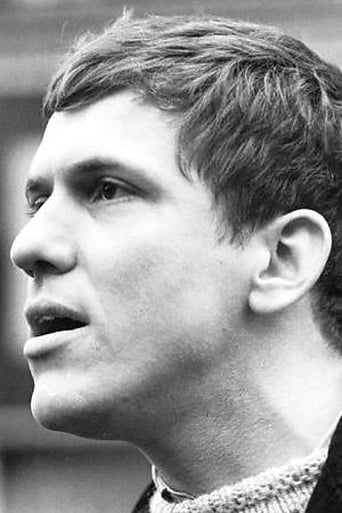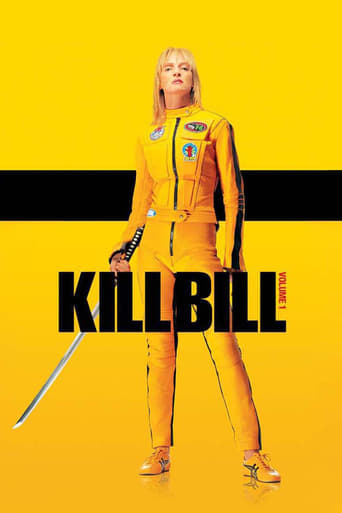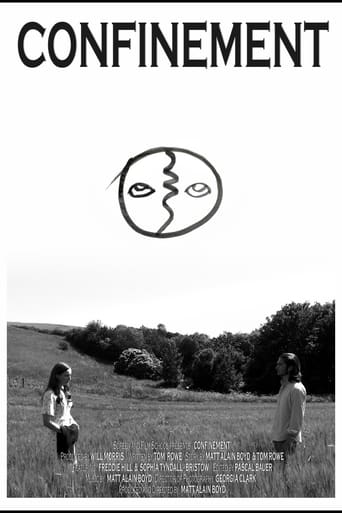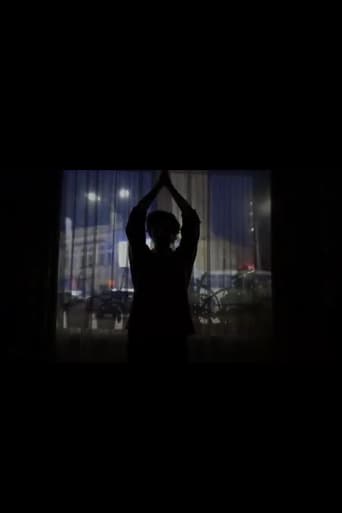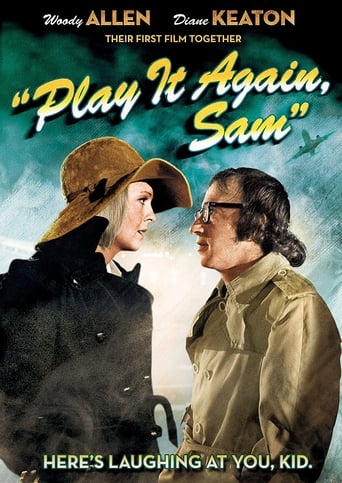
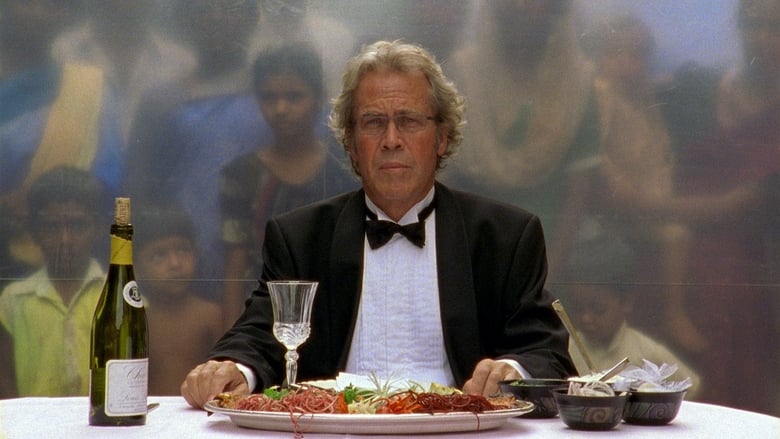
The Five Obstructions (2003)
Lars von Trier challenges his mentor, filmmaker Jørgen Leth, to remake Leth’s 1967 short film The Perfect Human five times, each with a different set of bizarre and challenging rules.
Watch Trailer
Cast


Similar titles
Reviews
Very Cool!!!
Fantastic!
Although it has its amusing moments, in eneral the plot does not convince.
The story-telling is good with flashbacks.The film is both funny and heartbreaking. You smile in a scene and get a soulcrushing revelation in the next.
It is true that in recent times,documentary film as a genre has been popularized by American director Michael Moore.However,most documentary films are neither made for nor understood by ordinary viewers.Danish film "The Five Obstructions" is a documentary film which truly represents this rule.It is a documentary for a selected audience as it requires audience's active participation in order to learn more about the personalities of two important people connected with it namely Danish directors Lars Von Trier and Jørgen Leth.What is important to watch is the manner in which both directors appreciate each other's genius.It is the viewer who decides which director is the best."The Five Obstructions" has a lot of useful material for cinema students too.A serious film student can learn a lot by watching how some of Lars Von Trier's challenges have elevated cinema's status as a 'serious art'.As a puzzle about cinema and the possibilities it offers to make an honest comment about people and the art of cinema,The Five Obstructions is an interesting albeit serious watch for all viewers who believe that cinema is not always synonymous with entertainment.
In the late 1960's, Danish filmmaker Jorgen Leth made a short conceptual work, titled The Perfect Human. Future filmmaker Lars von Trier saw Leth's film as a student in the 70's and was deeply inspired by it's use of cinematic rules and uncluttered presentation of cinematic composition. Over thirty years on, von Trier, now a close friend of Leth, has presented the elderly director with a mammoth task. He is to remake his celebrated short film, The Perfect Human not once, but five times, each with a strict and unarguably eccentric set of guidelines devised by von Trier.The Five Obstructions gives a great insight into the lives of these two filmmakers, as it documents Leth's cinematic strategies and intuitive genius in the face of von Trier's questioning pomposity, though ultimately the film ends up as little more than a subtle in-joke between the two filmmakers which, although interesting and enjoyable, leaves the viewer with little of personal meaning to take home with them. Leth's cinematic obstructions, here devised by von Trier, are an attempt to strip away any remnants of the senior director's genius, with von Trier proclaiming that the film won't be a success until Leth has turned it into a piece of crap (...von Trier's words!). The obstructions run the gauntlet from the seriously challenging (like no cut can be longer than twelve frames, the action must take place near a an 'unseen' scene of personal degradation), to the seriously strange (the film must be shot in Havana, the film must be a cartoon, your obstruction is there are no obstructions... and so on).Leth is able to deliver the film with almost all of von Trier's obstructions taken into consideration and, when each film is finished, the two filmmakers sit down together and watch the film whilst Leth is given the opportunity to explain to von Trier what his intentions were. The final obstruction is possibly von Trier's least pretentious concoction ever, as he turns the film completely on its head in a way that you'll either find mildly infuriating or heart-warmingly endearing. The film is a bold experiment and demonstrates how a filmmaker can elaborate on something they already view of as a 'perfect work' by being given a series of set guidelines by someone outside of the initial production's conception. But it could have been so much more.Many have viewed the film as an interesting essay into the nature of the auteur and the role of the director as the soul vision behind a work, but more people have seen it instead as a noble attempt by von Trier to lure the aging Leth away from his self-imposed exile in Haiti and his often mentioned, crippling depression. At any rate, the film has it's pros and cons, one of them being the notion that a film marketed as being very much about von Trier as a film-scamp turns out to be an intelligent and astute look into the workings of a filmmaker sadly neglected outside his native Denmark. I came to this film wanting to experience it as a fan of von Trier, but I left it wanting to learn more about Leth and to track down some of his works (shorts and documentaries) that are criminally unavailable here in the UK.The DVD of the Five Obstructions features the full-length version of Leth's original Perfect Human short, though it's lack of subtitles will cause an obvious hindrance for those of us who aren't fluent in the Danish language... though, this too could be an arcane obstruction for the audience, presented by von Trier. Well, perhaps? At the end of the day, The Five Obstructions remains an interesting look into the strange working relationship and antagonistic friendship that these two very different men share. It has humour, interesting visuals (taken from Leth's films) and a bold idea, but it could and should have delivered a lot more than it actually does.As the credits begin to roll, we are left with the feeling that, yes, I enjoyed that... did I learn anything from it? No, not really. This is an interesting failure, for cinephiles, von Trier fanatics & those with an interest in European film only.
Slow to start, but beautifully done...the last obstruction makes all the difference. You have to get to the end before you can say anything about the film. It's well worth the subtitles. I suggest watching the film in segments, obstruction by obstruction because it is slow. It does all culminate, however, in quite a lovely way, by the end of the film. Also, you get to see the original film from 1967 at the end. The way the films are obstructed each time creates such new and different, but also exciting, interesting and valuable films that it's fascinating to watch. This is definitely an artsy film, and you will have to read subtitles unless you speak Dutch? I think it's dutch. Anyway, for film buffs it's a great time. If you're just an idiot with no attention span however, you will cry out of boredom at this film.
Remake a film several times, with several restrictions (they really aren't obstructions: they seem so minor that they shouldn't stop him from finishing the films) For a director who seems to love the medium as much as Jorgen Leth seems to, it should be interesting to see him go through the progress of overcoming the challenge...if the film were challenging to make.The film in question, The Perfect Human, is the sort of art film that has made the word "art" so reviled to audiences. It features a guy doing nothing so interesting as walking on a pure white set, jumping, shaving, etc. as a narrator drones on. It says absolutely nothing. Give anyone a 35 millimeter camera and some money to waste, and I guarantee you they could make this film, shot for shot.Not to sound like an action movie junkie, but maybe if there was something that happened in this movie that was hard to do, or a story line, it would have met with my approval. But no, we have a remake of absolutely nothing over and over again.The remakes are, or course, just as shallow and pointless, but, notably, they look great: lots of polish. But it's like polishing a ball of shoe polish: there is no reason to look at it.Occasionally, unintentional humor surfaces, such as when Lars tells Jorgen to go Bombay, and make it there without letting the surroundings, which are chosen specifically for their awfulness affect the work. In essence, " go make your shallow film surrounded by infinitely more interesting material" and, of course, Jorgen does let a little local flavor in, and this pisses Trier off a little.Ordinarily, I'd just give this a two or three for being full of itself and pointless, but I'm knocking it down further for one little scene: for no reason, they leave in a moment of Leth and Trier eating caviar with some drink. This, an obvious attempt at trying to show themselves as sophisticated, just rubs in the audience's face "we're so rich that we freely waste money on overpriced crap." It made me think of all the poor, struggling filmmakers who want what would be pocket change for these guys, but no, the rich have to waste it on their own egos.It was nice to see Leth give a woman in Bombay with a child a few quid. So I'll give it two instead.


